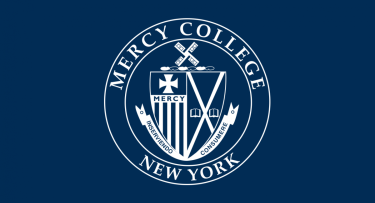Peer-Reviewed Studies by Physical Therapy Faculty

Four faculty members in the Mercy College Department of Physical Therapy have authored two new studies related to physical therapy practice and education during the COVID-19 pandemic. Both research articles were published in peer-reviewed journals this month.
“Experiences of physical therapists during the COVID-19 pandemic: an interpretive phenomenological analysis,” by Professor Marc Campo and Associate Professors Matthew Hyland and Ruth Hansen, appeared in Physiotherapy Theory and Practice. A second article, with Associate Professor Nannette Hyland as lead author, appeared in The Journal of Physical Therapy Education.
In the first study, the authors collected data from licensed physical therapists (PTs) working in New York during the early months of the pandemic. They concluded that the pressures of working through this “highly chaotic” period resulted in PTs assuming a greater role in interdisciplinary health care teams as they adapted to a crisis of historic proportions. In short, the authors concluded, “As the pandemic progressed, they [the PTs] redefined practice.” Campo said the findings may prove instructive in dealing with future public health crises.
Nannette Hyland, associate professor and program director of Physical Therapy, is listed as first author on the second study, “COVID-19 Impact on Students in Physical Therapist and Physical Therapist Assistant Education Programs in New York and New Jersey: Key Issues and Recommended Responses.” Her co-authors were faculty researchers from physical therapy programs at five colleges in New York and New Jersey. The study aimed to identify challenges that PT and PT assistant students faced during the upheaval brought about by the pandemic. The authors concluded that their findings “can be used to develop a crisis management plan for university emergencies” requiring program modifications. In fact, Mercy College utilized a portion of the study to assist them in making decisions during the pandemic.
Campo remarked on the swiftness with which Mercy College provided the necessary support for both studies to take place—literally within a few months of the start of the pandemic. “This unusually short time frame was crucial to collecting experiences that were still fresh in the minds of participants,” he said. “Because of Mercy’s commitment to faculty research, and because, unlike larger research universities, the College is nimble enough to move without delay, we were able to seize on this unique opportunity to advance the understanding of a global public health crisis.”
